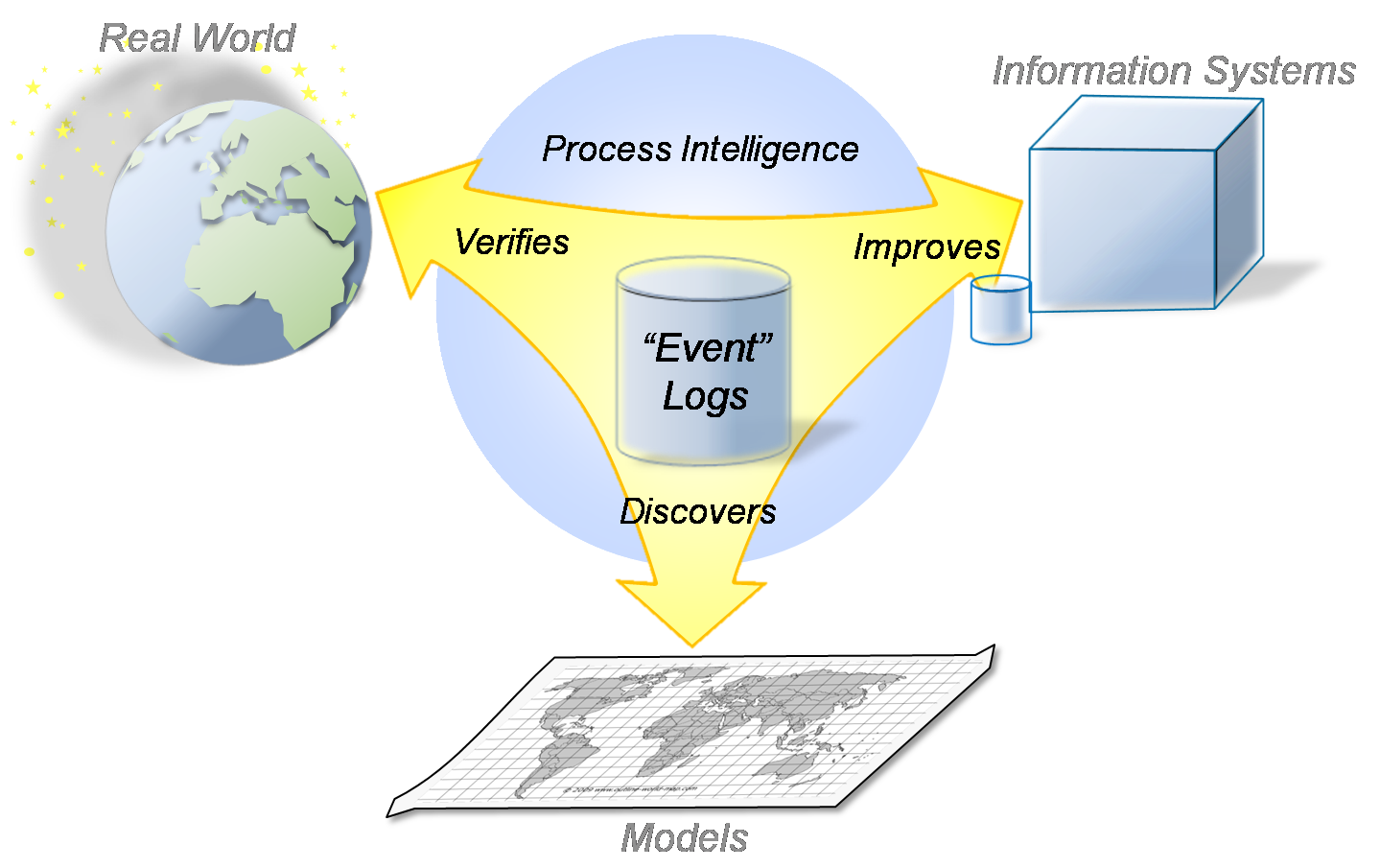
The most significant activities of any organization are by now supported by information systems. Less frequent the case in which only one system covers a whole process; but almost certainly, different ones support the most significant areas. The number of vertical solutions, developed for covering very specific areas, are steadily increasing as well. Furthermore, communication and collaboration tools support, almost entirely, most of the exchanges occurring between involved actors, both internal and external.
Quite all these systems produce some kind of logs, usually referred to as history, transaction log, audit trail, and so on. On other hand, a lot of data is stored in data bases or other repositories during day to day operations.
The way all these pieces of information are recorded in, depends by the process-awareness level of the tools (and consequently of the organization). Regardless the way they are recorded in, these information reproduce objectively the actual way of working.

Logs must at least consist of an ordinate sequence of events, each of whom referring to a specific process instance (also called case) and a single task (also called activity, operation, action or work item). Further additional information can be recorded, as time of occurrence (time-stamp) or executing person or system.
Starting from this (basic pieces of) information, it is the Process Intelligence allowing to gather deep and sound knowledge about the real processes.


 Visita
Visita

